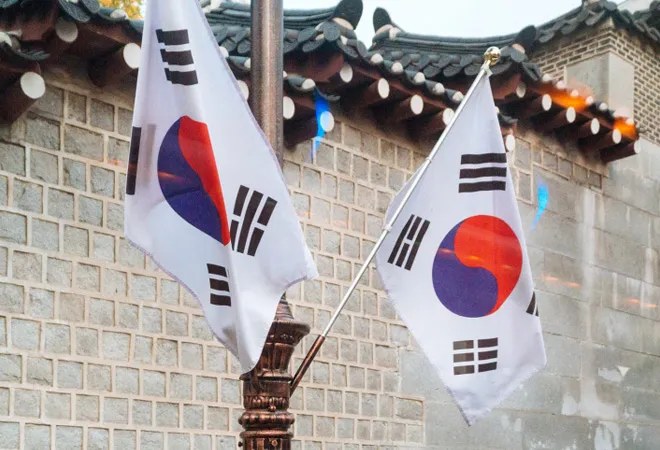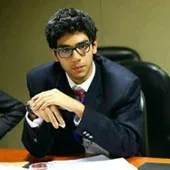
“The more things change, the more they stay the same”; it isn’t often that the lyrics of an 80’s hit apply to politics, but South Korea’s citizens might be inclined to look at the state of national politics and agree.
On the one hand, Korean politics has increasingly been defined by change. Two major national divides, based on gender and age respectively, have recast national life and politics.
South Korea’s struggles with gender equality, which is worryingly common across East Asian societies, have emerged as a key political fault line. Despite steady increases in female participation in the workforce and impressive higher education enrolment rates, Korea’s gender pay gap, which stands at 31 percent, is the highest amongst the Organisation for Economic Co-operation and Development (OECD) nations. Few women have the chance to breach the sanctum sanctorum that is Korea’s business and civil service elite. Gender issues were thrust into the national spotlight in the aftermath of the widespread social reckoning sparked by Korea’s #MeToo movement. Senior politicians, including Seoul’s longest-serving mayor, and celebrities alike, were accused and in some cases, convicted of sexual-assault-related crimes. Former President Moon Jae-In
introduced a raft of social policies that aimed to combat structural discrimination against women. The government has encouraged fathers to take paternity leaves, has expanded the number of publicly funded childcare centres, and has backed the expansion of re-employment centres for women.
Senior politicians, including Seoul’s longest-serving mayor, and celebrities alike, were accused and in some cases, convicted of sexual-assault-related crimes.
However, these measures
have run into determined opposition from a key constituency: Korea’s young men. They have a litany of concerns that centre around the fears of losing ground in a fiercely competitive Korean society. Young students face high levels of pressure, to both succeed academically at high school and university and to secure one of a dwindling number of secure, well-paying jobs. As youth unemployment scales new highs in South Korea, young men have seen their traditionally dominant position in Korean society come under attack as more women have entered the workforce and female-led social movements such as the #MeToo movement have gained more traction. This has precipitated an unprecedented political backlash as Korea’s angry young men have started to criticise everything from mandatory military service to affirmative action measures to bring women into the workforce.
President Moon’s administration also launched a five-year economic policy that aimed to promote gender-inclusive growth. However, in an era of rampant inequality and economic insecurity, men see policies aimed at bringing more women into the workplace as a form of “reverse discrimination”. Extraordinarily, both Korean women and men feel discriminated against. 84 percent of men in their 20s and 83 percent in their 30s felt discriminated against whilst 74 percent of South Korean women
felt they faced discrimination. This social discontent has spilt over to social media where online vitriol against feminism has become commonplace.
This discontent has become a potent weapon for political mobilisation. This was made abundantly clear when the liberal administration of President Moon Jae-In, which once enjoyed broad support amongst young men, saw its support in that key demographic crater. While Moon’s inability to combat South Korea’s housing and youth unemployment crisis has been a key factor in the erosion of his public standing, his perceived proximity to feminism
has been politically damaging. Sensing an opportunity, Korea’s conservatives have loudly taken up the cause of the nation’s disgruntled males. The elevation of a 36-year-old firebrand, Lee Jun-Seok, to the leadership of the Korean conservatives has led to a vitriolic mobilisation of young men against feminism. South Korea’s newly elected President, Yoon Seok Yeol, rode a wave of support from men aged below 30 and above 60 to narrowly beat out his liberal rival Lee Jae-Myung, who courted and received the support of young women. Even as the dust settled and the shock of defeat wore off, Korea’s liberals aped their conservative counterparts and elevated Park Ji-Hyun, a 26-year -old women’s rights activist, to co-chair their party’s steering committee.
Extraordinarily, both Korean women and men feel discriminated against. 84 percent of men in their 20s and 83 percent in their 30s felt discriminated against whilst 74 percent of South Korean women felt they faced discrimination.
These two politicians, Lee Jun-Seok and Park Ji-Hyun, exemplify South Korea’s divides. While Park shot to fame when she exposed the existence of an online sex crime ring as a student journalist and women’s rights advocate, Lee Jun-Seok has made his name leading the movement that opposes the push toward what young men see as “reverse-sexism”. In a country where one’s alma mater determines social status, connections, and professional success, Park is a graduate of a mid-tier Korean university, while Lee graduated from Harvard University.
Despite these differences, their rise to prominence captures a common theme: The impatience of Korea’s youth with the views and ways of life of an older generation of Koreans. A central focus of young Korea’s ire has been the “586 Generation”—they are in their 50s, went to university in the 80s and were born in the 60s. The 586 Generation were at the forefront of the student protest movement in the 1980s that played a key role in bringing about democratisation in South Korea. Afterwards, they moved into key positions in industry and politics as the Korean economy experienced rapid growth. However, the entrenched power and prosperity of the 586 Generation have been a source of tension. Young South Koreans, who struggle to find jobs and buy homes as easily as their predecessors did, have pushed to expand their own space relative to the pervasive influence of the 586 Generation. Park Ji Hyun, in particular,
came out decisively in favour of retiring older politicians amongst Korea’s liberals in an effort to appeal to younger voters. Park claimed that the 586 Generation’s mission—bringing democracy to Korea—had been achieved, and it was time, she seemed to be saying, to show them the door.
Young South Koreans, who struggle to find jobs and buy homes as easily as their predecessors did, have pushed to expand their own space relative to the pervasive influence of the 586 Generation.
Even as these battles for reform rage on, little seems to have changed. South Korea’s gender pay gap
declined only modestly from 68.5 percent in 2017 to 62 percent in 2021. President Yoon Seok-Yeol has taken positions that largely appeal to his base amongst young male voters. He has called for the abolition of the Ministry of Gender Equality and Family on the grounds that the Ministry has treated men like “potential sex criminals”. His fracas with the ministry notwithstanding, Yoon has also vowed to crack down harder on false sexual assault claims amidst concerns that such a move may discourage women from coming forward. Similarly, Park Ji Hyun’s efforts to make Korea’s liberal party younger and more in touch have been mugged by reality. Despite pledging support for Park’s plans, many older legislators have continued to run for office and consolidate their power within the party. After the liberals suffered a defeat in a series of local elections in June, Park Ji Hyun stepped down from her leadership position with her goals yet unfulfilled.
For now, South Korea’s efforts to stem gender imbalances and its demographic divide are going nowhere fast. As these battles continue, they almost seem to echo Bon Jovi’s words: “The more things change, the more they stay the same”.
The views expressed above belong to the author(s). ORF research and analyses now available on Telegram! Click here to access our curated content — blogs, longforms and interviews.



 “The more things change, the more they stay the same”; it isn’t often that the lyrics of an 80’s hit apply to politics, but South Korea’s citizens might be inclined to look at the state of national politics and agree.
On the one hand, Korean politics has increasingly been defined by change. Two major national divides, based on gender and age respectively, have recast national life and politics.
South Korea’s struggles with gender equality, which is worryingly common across East Asian societies, have emerged as a key political fault line. Despite steady increases in female participation in the workforce and impressive higher education enrolment rates, Korea’s gender pay gap, which stands at 31 percent, is the highest amongst the Organisation for Economic Co-operation and Development (OECD) nations. Few women have the chance to breach the sanctum sanctorum that is Korea’s business and civil service elite. Gender issues were thrust into the national spotlight in the aftermath of the widespread social reckoning sparked by Korea’s #MeToo movement. Senior politicians, including Seoul’s longest-serving mayor, and celebrities alike, were accused and in some cases, convicted of sexual-assault-related crimes. Former President Moon Jae-In
“The more things change, the more they stay the same”; it isn’t often that the lyrics of an 80’s hit apply to politics, but South Korea’s citizens might be inclined to look at the state of national politics and agree.
On the one hand, Korean politics has increasingly been defined by change. Two major national divides, based on gender and age respectively, have recast national life and politics.
South Korea’s struggles with gender equality, which is worryingly common across East Asian societies, have emerged as a key political fault line. Despite steady increases in female participation in the workforce and impressive higher education enrolment rates, Korea’s gender pay gap, which stands at 31 percent, is the highest amongst the Organisation for Economic Co-operation and Development (OECD) nations. Few women have the chance to breach the sanctum sanctorum that is Korea’s business and civil service elite. Gender issues were thrust into the national spotlight in the aftermath of the widespread social reckoning sparked by Korea’s #MeToo movement. Senior politicians, including Seoul’s longest-serving mayor, and celebrities alike, were accused and in some cases, convicted of sexual-assault-related crimes. Former President Moon Jae-In PREV
PREV


